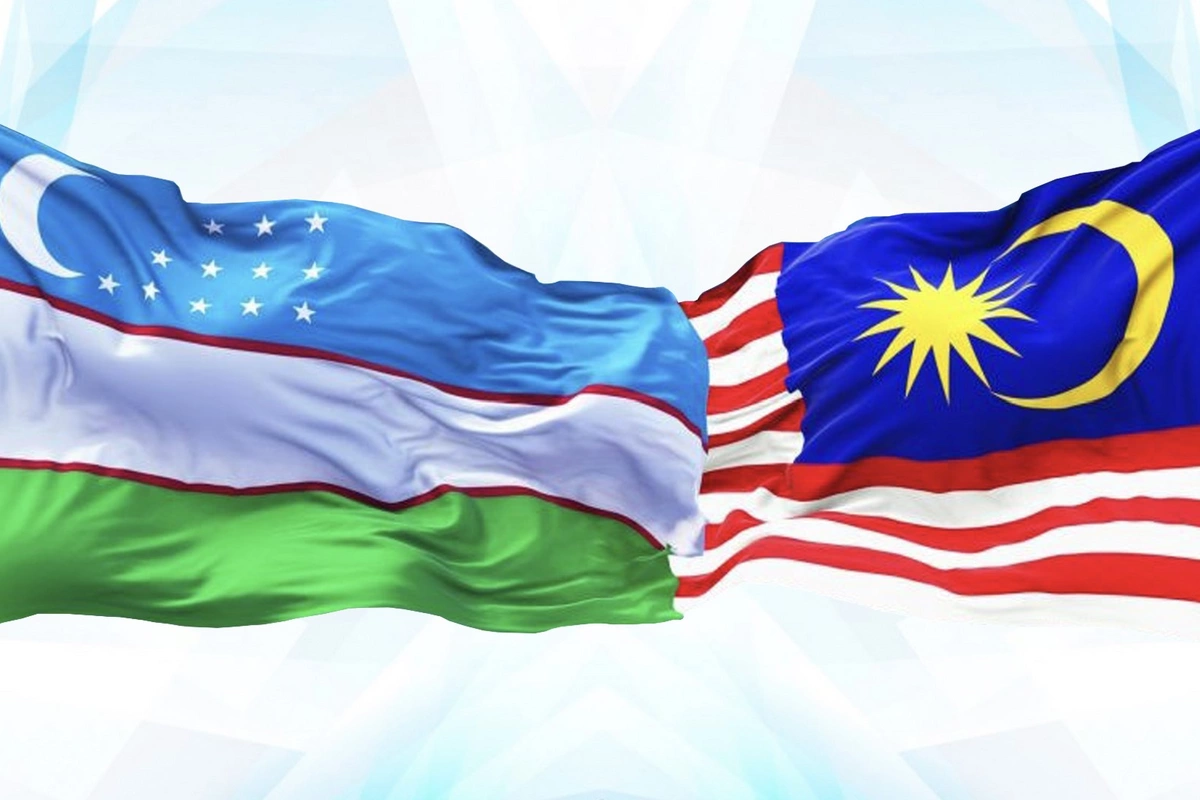
Malaysia is a distinctive Southeast Asian nation known for its rich cultural heritage, breathtaking natural landscapes, and developed economy. Comprising multiple islands and peninsulas, it is home to a wide range of ethnic groups, each with their own languages, customs, and traditions, making it a truly fascinating place to explore.
Malaysia is divided into two main parts: the Malacca peninsula and the island of Borneo. The capital, Kuala Lumpur, serves as the country’s economic and cultural hub, The Caspian Post reports citing UzA.
The national flag of Malaysia features red, white, and blue colors, adorned with a star and crescent - key symbols of the nation. The official language is Malay, though English, Chinese, and Tamil are also widely spoken. Malaysia has a population of approximately 32 million, with Malays making up 60%, while the rest are primarily Chinese and Indians. Although Malaysia is a Muslim-majority country, it is also home to a significant number of Christians and Buddhists.
Malaysia is a treasure trove of unique nature, home to rare plants and animals. Exotic tropical forests, majestic mountains, pristine white beaches, and vibrant coral reefs create an unparalleled natural landscape. Some tropical trees in Malaysia grow over 100 meters tall. The highest point in the country, Mount Kinabalu, rises 4,095 meters above sea level. To preserve biodiversity, 25 national parks and reserves have been established, providing habitat for species such as the Malayan sun bear, raccoon, badger, and gibbon.
Malaysia’s economy is developing dynamically, the world’s largest palm oil producer. Thanks to its natural beauty, rich history, and cultural diversity, Malaysia has become one of the most popular tourist destinations in the world. The Petronas Towers in Kuala Lumpur are a symbol of the nation. Malaysia offers a wide range of opportunities for active recreation, including water sports, mountaineering, and ecotourism.
The International Islamic University Malaysia is one of the country’s most prestigious educational institutions. Many historical monuments and cultural heritage sites are included in the UNESCO World Heritage List. Malacca is one of the most renowned ancient cities.
Until 2004, the 88-story Petronas Towers, standing 451.9 meters tall in Kuala Lumpur, were the tallest buildings in the world. They remain the tallest twin towers, connected by a sky bridge at 170 meters.
The world’s largest cave, Sarawak Chamber, is located in Gunung Mulu National Park on the island of Borneo. It is so vast that it could accommodate 40 Boeing 747 airplanes.
Malaysia continues to demonstrate dynamic growth in industries such as light manufacturing, mining, processing, and electronics production. The number of high-tech sectors in the economy is also expanding. State policies focused on education have been a significant factor in the country’s development and have been implemented since the 1970s. The flexible system of tax incentives for investors, originally designed to attract foreign investments, remains compelling to this day.
Malaysia actively promotes investments in information technology, tourism, export-oriented and capital-intensive industries, and high-tech sectors. There’s a surge in investments in the petrochemical and oil refining industries. Sectors such as automotive manufacturing, food processing, electronics, and electrical engineering are also developing rapidly.
Trade, economic, cultural, humanitarian, and scientific ties between Uzbekistan and Malaysia are yearly strengthening. There is a historically rooted friendship between the two nations, founded on shared religion, traditions, and values. Malaysia recognized Uzbekistan’s independence on January 1, 1992. Diplomatic relations between the countries were established on February 21 of the same year.
The foundations of friendly and mutually beneficial relations were laid during the official visits of Uzbekistan’s First President in 1992 and Malaysia’s Prime Minister Mahathir Mohamad in 1993. In 2003, King Tuanku Syed Sirajuddin Putra Jamalullail of Malaysia paid a state visit to Uzbekistan.
Over the past few years, trade turnover between Uzbekistan and Malaysia has increased 2.5 times, while the number of joint ventures with Malaysian capital in Uzbekistan has reached 37. The visit of Prime Minister Anwar Ibrahim to Uzbekistan in May 2024 gave new momentum to the development of bilateral relations. As a result of the visit, a Joint Statement on Deepening Multidimensional Cooperation was signed. Additionally, an agreement was reached to establish the Uzbekistan - Malaysia Industrial Zone in Uzbekistan to promote high-tech projects. 19 investment agreements worth over $3 billion were signed during the business forum.
Cooperation between the two countries in education and workforce training is also expanding. Under the Malaysian government’s Technical Cooperation Program, over 850 specialists from Uzbekistan’s ministries and agencies have completed training in Malaysia. Currently, around 500 Uzbekistan students are studying at prestigious Malaysian universities. A total of 25 cooperation agreements have been signed between the educational institutions of both countries. These figures highlight the dynamic growth of mutually beneficial partnership.
At the invitation of the Prime Minister of Malaysia Anwar Ibrahim, the President of Uzbekistan will pay an official visit to Malaysia on February 4-5. During the visit, bilateral high-level negotiations, meetings with leaders of major companies, a joint business forum, and other events are scheduled in Kuala Lumpur.
Malaysia is a rapidly developing country with unique potential not only in Southeast Asia but also on a global scale. The upcoming visit aims to elevate bilateral relations to a qualitatively new level. Additionally, it will serve as a solid foundation for further strengthening the friendship between Uzbekistan and Malaysia, as well as expanding practical cooperation in priority areas such as trade, investment, innovation, technological collaboration, petrochemicals, electronics, green energy, smart agriculture, tourism, and many others.
Share on social media